 Your new post is loading...
 Your new post is loading...

|
Scooped by
Gust MEES
March 29, 2019 3:51 PM
|
Les trois pays européens les plus exposés au Brexit sont, dans l’ordre, l’Irlande, le Luxembourg et les Pays-Bas, selon l’«indice de sensibilité au Brexit» calculé par l’agence de notation Standard & Poor’s (S&P) et publié le 28 mars. Selon les critères retenus par celle-ci, les pays les moins exposés sont alors l’Italie, l’Autriche et la Finlande.
Dans le détail, l’indice de S&P compile les données liées aux exportations de biens et services vers le Royaume-Uni, aux flux migratoires bidirectionnels, aux liens du secteur financier vis-à-vis de contreparties britanniques et aux investissements directs étrangers (IDE) au Royaume-Uni. Learn more / En savoir plus / Mehr erfahren: https://www.scoop.it/t/luxembourg-europe/?&tag=Brexit

|
Scooped by
Gust MEES
March 4, 2019 7:19 AM
|
04-03-2019
The European Commission has recently launched four Cybersecurity Competence Networks with the aim of accelerating cybersecurity research by drawing together Europe’s leading experts. Each network brings together some 40 partners from across Europe, with a total initial financing of around €65 million provided by the Horizon 2020 programme. The objective is to scale up existing research for the benefit of Digital Single Market cybersecurity and to arrive at a blueprint for the governance of ongoing large-scale collaboration in the field.
Participation in the networks was highly competitive, and the University of Luxembourg was selected for three of the networks. Through its Interdisciplinary Centre for Security, Reliability and Trust (SnT), it will contribute experts working in resilient systems for the Internet of Things (IoT), biomedical data protection, automated detection and fixing of Android app vulnerabilities, big data, and blockchain based distributed systems.
Cross-sector expertise
Professor Paulo Esteves-Veríssimo, FNR PEARL Chair, is coordinating SnT’s involvement in the initiative, alongside colleagues Professor Yves Le Traon and Professor Radu State: “SnT is a good example of a research centre with expertise across cybersecurity, from cryptography and blockchain to IoT and software testing. But if we are to secure our critical industries — healthcare, energy, finance, transportation, and public administration — we need actors from across Europe pulling together and challenging one another to reach new heights,” he says.
Professor Esteves-Veríssimo’s own efforts focus on extreme threats to critical information infrastructures, such as power grid control and autonomous driving systems. “The systems we use today are complex, and that creates vulnerabilities,” he explains. “My team investigates innovative algorithms and mechanisms we can apply to make systems tolerate faults and intrusions in an automatic way; our critical information infrastructures need to endure and adapt, regardless of whether the problem is an accidental malfunction or a malicious attack. We call it resilience, and it needs to be built into our digital infrastructure. Learn more / En savoir plus / Mehr erfahren: http://www.scoop.it/t/luxembourg-europe/?&tag=Cybersecurity http://www.scoop.it/t/luxembourg-europe/?tag=Digital+L%C3%ABtzebuerg https://www.scoop.it/topic/luxembourg-europe/?&tag=University+Luxembourg

|
Scooped by
Gust MEES
December 5, 2018 4:58 PM
|
Blink, and you could pass through Europe’s smaller nations without realising. Take Luxembourg, which can be crossed by car in just over an hour at its widest point. Before you know it, you’ve popped out into the surrounding countries of France, Germany or Belgium, with only the eagle-eyed spying the border sign and the striped flags of the Grand Duchy far behind.
The ability to do this is partly down to its petite size, but also thanks to a Luxembourgian legacy: a treaty signed more than 30 years ago in the tiny village of Schengen in the country’s far south-east. The now-renowned Schengen Agreement dramatically changed the way we travel within Europe, and continues to evolve today. Learn more / En savoir plus / Mehr erfahren: https://www.scoop.it/t/luxembourg-europe/?&tag=SCHENGEN https://www.scoop.it/t/luxembourg-europe/?&tag=EU https://www.scoop.it/t/luxembourg-europe/?&tag=tourism

|
Scooped by
Gust MEES
October 17, 2018 12:30 PM
|
The Women in Digital Scoreboard assesses women’s participation in the digital economy
Last week, the European Commission released its first-ever Women in Digital Scoreboard: a simple study with huge implications.
According to the Scoreboard, Luxembourg’s public-private measures aimed at giving everyone access to the digital economy – whether children, immigrants, low-earners or women – are having an impact.
Of the 29 member states referenced in 2018’s Women in Digital Index, Luxembourg ranked third overall – the lone non-Scandinavian country in the top four – wedged between Sweden, and Denmark, with Finland earning top honors.
Across Europe, countries are accelerating their efforts to close the digital gender gap, because, in a very literal sense, it represents untapped potential. As the Scoreboard publication accurately puts it, “The underrepresentation of women in the digital economy is a missed opportunity for Europe and is costing us dearly.” Learn more / En savoir plus / Mehr erfahren: https://www.scoop.it/t/luxembourg-europe/?&tag=Gender

|
Scooped by
Gust MEES
August 27, 2018 8:44 AM
|
Das Preisniveau in Luxemburg liegt um 41 Prozent über dem Schnitt der Europäischen Union. Schuld daran sind vor allem die Wohnungspreise.
Luxemburg ist nicht nur gefühlt, sondern auch ganz amtlich das teuerste Land in der Europäischen Union. Zahlen des europäischen Statistikamtes Eurostat belegen, dass das Großherzogtum zusammen mit Dänemark an der Spitze der teuersten Länder der EU steht.
Demnach lag das Preisniveau 2017 in den beiden Ländern um 41 Prozent über dem europäischen Durchschnitt. Gefolgt wurden die Länder von Schweden (+35%), Irland (+28%), Finnland (+23%) und dem Vereinigten Königreich (+17%).
In Dänemark wiegen vor allem Restaurant- und Hotelbesuche schwer im Portemonnaie (+51%). Auch Essen ist in Dänemark sehr teuer (+50%). In Luxemburg war es vor allem – wenig überraschend – die Kategorie “Wohnen, Wasser, Strom und Gas”, die preislich stark über dem EU-Durchschnitt lag (+63%). Learn more / En savoir plus / Mehr erfahren: https://www.scoop.it/t/luxembourg-europe/?&tag=Eurostat

|
Scooped by
Gust MEES
June 25, 2018 7:17 AM
|
Großherzogtum rückt in die Gruppe der Innovationsführer vor
Luxemburg zählt im neuen „Europäischen Innovationsanzeiger“ der Europäischen Kommission neben Ländern erstmals zu den „Innovationsführern“. „Dies ist ein großer Schritt für das junge luxemburgische Forschungs- und Innovationsökosystem und eine wichtige Anerkennung der kontinuierlichen Bemühungen des Landes, eine erstklassige Forschungs- und Innovationslandschaft zu entwickeln“, teilte am Freitag der nationale Forschungsfonds (FNR) mit.
Schweden und Dänemark stehen auf Platz 1 und zwei des „European Innovation Scoreboard 2018“, Luxemburg folgt vor Frankreich, Irland und Belgien auf Platz 3.
Wie die EU-Kommission darauf hinweist, wurden in Luxemburg in den letzten zehn Jahren beträchtliche Fortschritte bei der Verdopplung der Investitionen in Forschung, Entwicklung und Innovation erzielt.
Demnach war der luxemburgische nationale Forschungsfonds (FNR) einer der Schlüsselfaktoren, um Luxemburg durch Wissenschaft, Forschung und Innovation zu einer führenden wissensbasierten Gesellschaft zu machen. In den vergangenen vier Jahren habe der FNR öffentlich-private Partnerschaftsprogramme weiterentwickelt und die Budgets für Programme erhöht, die den Wissenstransfer zur erfolgreichen kommerziellen Nutzung von Forschungsfunden unterstützen, teilte der FNR dazu mit. Und weiter: „Attraktive Forschungssysteme und geistiges Eigentum sind [Luxemburgs] stärkste Innovationsdimension.“ Learn more / En savoir plus / Mehr erfahren: https://www.scoop.it/t/luxembourg-europe/?&tag=Innovation

|
Scooped by
Gust MEES
June 13, 2018 4:52 AM
|
LuxConnect is the winner of the 2018 Annual Award for the EU Code of Conduct for Data Centre in the category Participant with its DC2 data centre in Bissen, Luxembourg. The award was received by LuxConnect CEO Roger Lampach during this year’s prestigious Datacloud Europe awards ceremony in Monaco.
LuxConnect operates four state-of-the-art colocation data centres in Luxembourg. LuxConnect’s DC2 data centre won the award because it was judged to be the best example of implementation of the EU Code of Conduct in the last year.
The European Code of Conduct on Data Centre Energy Efficiency is a voluntary initiative managed by the European Commission and was created in response to increasing energy consumption in data centres. The goal is to inform and stimulate data centre operators to reduce energy consumption in a cost-effective manner without impacting the critical function of data centres.
Data centres measure their energy efficiency in Power Usage Effectiveness (PUE). The average PUE value of LuxConnect’s Tier IV Uptime certified data centres is 1.3. LuxConnect tenants benefit from this and the low cost of power in the form of reduced power bills/OPEX.
LuxConnect is honoured with this award completing the gallery of three previous awards for LuxConnect’s innovative green cooling concept implemented in data centre DC2 in Bissen, Luxembourg.
The DC2 data centre is cooled by the surplus heat from the Kiowatt cogeneration plant fueled by biomass. 65% of the heat generated by the cogeneration plant is used to cool the data center located on the other side of the road. More precisely, 2 absorption refrigeration machines are powered by superheated water from the cogeneration plant. The cold water is then delivered via underground pipework network to the data centre. Learn more / En savoir plus / Mehr erfahren: http://www.scoop.it/t/luxembourg-europe/?tag=Digital+L%C3%ABtzebuerg https://www.scoop.it/t/luxembourg-europe/?&tag=Data-Centre

|
Scooped by
Gust MEES
May 21, 2018 4:42 PM
|
Die Digitalisierung ist in Luxemburg Chefsache: “Luxemburg ist die Lokomotive, wir wollen nicht im Waggon sitzen”, sagte Premierminister Xavier Bettel vor Journalisten im September des vergangenen Jahres. Tatsächlich hat die Regierung zahlreiche Initiativen gestartet. Das neueste, “Fit4Digital”, startete im Januar und soll vor allem die kleinen und mittleren Unternehmen im Land bei der Digitalisierung voranbringen.
Aber zahlen sich die Anstrengungen auch aus? Oder hapert es an der banalen Praxis – wie beispielsweise an einem schlechten Handyempfang? Die Europäische Kommission hat auf diese Fragen eine Antwort gesucht. In ihrem Digital Economy and Society Index nimmt sie alle Mitgliedstaaten unter die Lupe. Und Luxemburg schneidet im Vergleich gut ab. Das Land gehört zum “High-Performance-Cluster” der Länder, lobt die Kommission. Grund sei eine ambitionierte Strategie für den digitalen Sektor unter der Ägide der staatlichen Initiative Digital Luxembourg. EU-weit landet das Land hinter Dänemark, Schweden, Finnland und den Niederlanden auf Platz fünf des Rankings für 2018. Learn more / En savoir plus / Mehr erfahren: https://www.scoop.it/t/luxembourg-europe/?&tag=DESI http://www.scoop.it/t/luxembourg-europe/?tag=Digital+L%C3%ABtzebuerg

|
Scooped by
Gust MEES
May 15, 2018 3:01 PM
|
Avec la digitalisation de la société, de plus en plus d’entreprises, administrations publiques, associations et autres professionnels peuvent être amenés à collecter, échanger et traiter des données à caractère personnel.
Or, les organismes qui utilisent ces données seront soumis à des règles encore plus strictes à compter du vendredi 25 mai, et cela à travers toute l’Union européenne.
Des traitements tels que la vidéosurveillance, la géolocalisation, la gestion des ressources humaines (conservation des CV, par exemple), la biométrie ou encore le transfert vers des pays tiers vont tous devoir se faire dans le respect de ces règles.
Un séminaire organisé par le CNPD
Afin de respecter les droits des citoyens et leurs propres obligations, il est important que les acteurs (intéressés, responsables de traitement, sous-traitants…) comprennent la protection des données.
«L’objectif du RGPD est double. D’une part, il vise à redonner le contrôle sur les données qu’il partage au particulier. D’autre part, il doit permettre de faire circuler les données au sein de l’UE», explique la présidente de la Commission nationale de protection des données (CNPD), Tine Larsen. Learn more / En savoir plus / Mehr erfahren: https://www.scoop.it/t/luxembourg-europe/?&tag=GDPR

|
Scooped by
Gust MEES
May 3, 2018 11:52 AM
|
Die EU-Kommission rechnet in der Eurozone mit einem robusten Wirtschaftswachstum in diesem Jahr, sieht aber mehr Risiken denn je durch die Politik von US-Präsident Donald Trump. Das Bruttoinlandsprodukt werde 2018 in den 19 Ländern mit der Gemeinschaftswährung um 2,3 Prozent zunehmen, erklärte die Brüsseler Behörde am Donnerstag. 2019 solle es dann bei 2,0 Prozent liegen. Die EU-Kommission bestätigte damit ihre Prognose von Anfang des Jahres.
Innerhalb Europas sieht sie eine Reihe positiver Entwicklungen. Die Beschäftigung steige, die Neuverschuldung und die Gesamtschuldenstände der öffentlichen Haushalte gingen zurück. Doch es gibt zunehmend Risiken. Die Konjunkturmaßnahmen in den USA könnten zu einer «Überhitzung» der Wirtschaft führen. Zudem sei eine Eskalation des US-Handelsstreits eine Gefahr. Die Eurozone sei dabei durch ihre Offenheit besonders anfällig. Learn more / En savoir plus / Mehr erfahren: https://www.scoop.it/t/luxembourg-europe/?&tag=Economy

|
Scooped by
Gust MEES
April 23, 2018 7:03 AM
|
Laut eines am heutigen Montag veröffentlichten Berichts der europäischen Statistikplattform Eurostat hat Luxemburg im Jahr 2017 ein sattes Plus im Haushalt verbuchen können. Im europäischen Vergleich liegt Luxemburg mit einem Überschuss von 1,5 Prozent auf Platz vier. Das größte Plus konnte Malta mit 3,9 Prozent verbuchen. Es folgten Zypern (1,8 Prozent) und Tschechien (1,6 Prozent). Learn more / En savoir plus / Mehr erfahren: https://www.scoop.it/t/luxembourg-europe/?&tag=Eurostat

|
Scooped by
Gust MEES
March 30, 2018 6:07 AM
|
Schengen added to the European Heritage Label list
The Schengen Area currently includes 26 Member States and has become synonymous with the free circulation of people and goods.
The European Commission has just added nine European sites celebrating and symbolising European ideals, values, history and integration to the European Heritage Label list. The label is intended to strengthen the sense of belonging of European citizens – particularly young people – to the European Union, and to stimulate intercultural dialogue.
Among these nine sites is the village of Schengen, the first site in Luxembourg to be added to the European Heritage Label list. Schengen symbolises one of the major results of European integration.
The little village located on the border between three countries has always been associated with European integration since the signing of the Schengen Agreement on 14th June 1985, on board the ship 'Princesse Marie-Astrid', when France, Germany and the Benelux countries committed to give up in internal border controls within the countries concerned.
The Schengen Area currently includes 26 Member States and has become synonymous with the free circulation of people and goods. Learn more / En savoir plus / Mehr erfahren: https://www.scoop.it/t/luxembourg-europe/?&tag=SCHENGEN

|
Scooped by
Gust MEES
February 28, 2018 9:24 AM
|
Luxembourg’s data protection agency, the CNPD, has released a data breach notification form ahead of strict new European rules coming into effect later this year.
Among its provisions, the EU’s General Data Protection Regulation requires “data controllers” (organisations that keep personal information) to inform their national regulator of a data breach within 72 hours of discovering it, “if the breach is likely to result in a risk to the rights and freedoms of individuals.”
The GDPR applies starting 25 May.
On its website, the CNPD said organisations were not required to use the form, but it listed the required information.
The CNPD also stated that organisations needed to document all breaches of personal data, even if it is not reported to the privacy watchdog. Organisations are required to record the facts surrounding the breach, its impact and the steps taken to remedy the situation. The CNPD can ask to check this documentation.
The reporting form was published on 12 February, and is available in English and French. It should be submitted via email to databreach@cnpd.lu. Learn more / En savoir plus / Mehr erfahren: https://www.scoop.it/t/luxembourg-europe/?&tag=GDPR
|

|
Scooped by
Gust MEES
March 22, 2019 9:26 AM
|
In 2016, the average rate of compensation of employees in the European Union (EU), in terms of wages, salaries and employers' social contributions, ranged from €44 per hour worked, in the Brussels city region and in Luxembourg, to below €4 per hour worked in three regions in Bulgaria (Severen tsentralen, Severozapaden and Yuzhen tsentralen) and the Nord-Est region of Romania.
The corresponding average across the EU as a whole in 2016 was €23 per hour. Learn more / En savoir plus / Mehr erfahren. https://www.scoop.it/topic/luxembourg-europe/?&tag=Eurostat

|
Scooped by
Gust MEES
February 27, 2019 5:34 AM
|
The European Commission announced on 26 February the investment of over €63.5m in the launch of four pilot projects aimed to strengthen the EU’s cybersecurity capability.
The University of Luxembourg is the only organisation in Europe to be present in three of four of them.
It is anticipated that each of the four projects, Concordia, Echo, Sparta and CyberSec4Europe, will further advance the EU cybersecurity ecosystem, something critical in an era where it is anticipated that much of geopolitical risk will be linked to cyberthreats. Learn more / En savoir plus / Mehr erfahren: http://www.scoop.it/t/luxembourg-europe/?&tag=Cybersecurity http://www.scoop.it/t/luxembourg-europe/?tag=Digital+L%C3%ABtzebuerg

|
Scooped by
Gust MEES
December 1, 2018 8:59 AM
|
Luxembourg has ranked 6th place in the field of open data in the European Union.
The results of the 2018 comparative Open Data study led by the European Data Portal, an initiative of the European Commission, have shown that Luxembourg remains among the top 10 EU countries in this area. The annual study compares the respective state of play of EU countries regarding open data as measured according to different aspects, such as the political and organisational framework, the impact of open data, the national portal and the quality of this data.
This year saw the Grand Duchy once again among the leaders in this field. Indeed, experts highlighted not only the quality, functional aspects and utilisation rate of the Luxembourg national portal www.data.public.lu, but also the organisational and strategic arrangements put in place for open data at the national level. Learn more / En savoir plus / Mehr erfahren: https://www.scoop.it/t/luxembourg-europe/?&tag=Open+Data https://www.scoop.it/t/luxembourg-europe/?&tag=EU

|
Scooped by
Gust MEES
September 1, 2018 3:54 AM
|
Luxemburg hat die höchste Sparquote in der ganzen Europäischen Union. In Zypern ist die Quote negativ.
Die luxemburgischen Haushalte sparen mehr als alle anderen in der Europäischen Union. Und dies trotz des überdurchschnittlich hohen Preisniveaus im Großherzogtum. Luxemburgs Haushalte hatten 2016 eine Sparquote von 20,4 Prozent, ermittelte die europäische Statistikbehörde Eurostat.
Um die Quote zu berechnen, teilte Eurostat das Bruttoersparte der privaten Haushalte durch das verfügbare Bruttoeinkommen. Mit anderen Worten: die Haushalte legen ein Fünftel ihres Einkommens auf die hohe Kante.
An zweiter Stelle im europäischen Ranking steht Schweden mit einer Quote von 19 Prozent, gefolgt von Deutschland (17 Prozent) und Frankreich (14 Prozent). Am wenigsten gespart wurde in Zypern (-2 Prozent), Litauen (0 Prozent), Lettland (3 Prozent) und Polen (4 Prozent). Learn more / En savoir plus / Mehr erfahren: https://www.scoop.it/t/luxembourg-europe/?&tag=Eurostat

|
Scooped by
Gust MEES
June 27, 2018 5:03 AM
|
Annoncée par la Commission européenne en janvier dernier, l’installation du siège du supercalculateur européen au Luxembourg a été «définitivement décidée» ce lundi.
EuroHPC, ce projet de supercalculateur européen, prendra officiellement domicile au Luxembourg. Déjà annoncée en janvier dernier par la Commission européenne, l’installation du siège de l’entreprise commune EuroHPC a été «définitivement décidée» ce lundi.
«En tant que nouvelle structure juridique et financière, EuroHPC supervisera à partir du Grand-Duché la mise en commun des ressources pour développer et mettre en place un réseau européen de superordinateurs», explique le communiqué du gouvernement grand-ducal. Learn more / En savoir plus / Mehr erfahren: https://www.scoop.it/t/luxembourg-europe/?&tag=HPC https://www.scoop.it/t/luxembourg-europe/?&tag=EuroHPC

|
Scooped by
Gust MEES
June 21, 2018 3:46 PM
|
Le Luxembourg indemnisera le chômeur frontalier
Le Grand-Duché devra indemniser les demandeurs d’emploi qui ont travaillé sur son territoire. Un coup dur pour le ministre du Travail, Nicolas Schmit, qui a bataillé ferme, jeudi, lors d’un conseil européen qui se déroulait au Kirchberg. «Passer à près de 30 000 demandeurs d’emploi à suivre par nos placeurs alors qu'aujourd’hui nous en avons entre 15 000 et 16 000, c’est un saut quantitatif et qualitatif que le Luxembourg sera incapable de faire en deux ans», a-t-il insisté auprès de ses homologues européens.
En gros, l’Adem (Agence pour le développement de l’emploi) devrait doubler ses effectifs pour pouvoir faire face à ses nouvelles responsabilités. Après de longues discussions, le Luxembourg a finalement obtenu un compromis sur la question. Dans un premier temps, tous les pays européens auront deux ans pour se mettre au diapason et indemniser les chômeurs qui avaient travaillé sur leur territoire en dernier. Durant cette période, le Luxembourg, de son côté, remboursera cinq mois de chômage (trois actuellement) au pays de résidence.
Les cinq années suivantes, cette prise en charge ira crescendo. «Mais au moins l’Adem n’aura pas à assurer le suivi de ces demandeurs d’emploi», a souligné Nicolas Schmit, qui craignait de voir le suivi des chômeurs résidents se dégrader à cause de la surcharge de travail. Malgré ce compromis, le ministre socialiste ne désespère pas de faire plier les États membres et enterrer ce règlement européen avant qu’il ne voie vraiment le jour. Il s’est déjà trouvé un allié avec l’Allemagne. Learn more / En savoir plus / Mehr erfahren: https://www.scoop.it/t/luxembourg-europe/?&tag=ch%C3%B4mage

|
Scooped by
Gust MEES
May 29, 2018 12:22 PM
|
La formation professionnelle continue (FPC) a le vent en poupe au Luxembourg et une étude du Statec diffusée lundi confirme la tendance: 72% des entreprises au Grand-Duché offrent des cours de FPC à leurs salariés. C’est davantage que la moyenne européenne qui pointe à 61% mais le Luxembourg se classe derrière ses voisins puisqu’en France, ce taux monte à 75% et même à 78% en Belgique.
Toutefois, la progression de la part des entreprises offrant des formations se fait au même rythme que dans l’UE, selon le Statec qui pointe quelques spécificités luxembourgeoises. Tout d’abord, l’impact réel des cours sur les personnes occupées est plus important, avec six personnes sur dix qui y participent contre quatre sur dix en Europe. Ensuite, les femmes profitent proportionnellement plus de l’offre en FPC, avec un différentiel positif de 5,5% contre un négatif de 3,3% en moyenne européenne. Enfin, le nombre d’heures de cours par participant est dix fois plus élevé au Luxembourg que dans la moyenne européenne, avec 35 heures recensées au Luxembourg. En termes de pourcentage d’heures de travail consacrées aux cours de FPC, le Luxembourg est deuxième au classement avec 1,22% des heures travaillées consacrées à des cours de FPC. Seule la Belgique fait mieux avec un taux de 1,22%.
Les langues et l’informatique sont très demandées
Quant au contenu des cours, ils se concentrent sur les langues et l’informatique. Si l’organisation de la FPC est plus structurée que dans la moyenne européenne au Luxembourg, le pays met moins l’accent sur l’évaluation, en particulier lorsqu’on compare avec la France. Learn more / En savoir plus / Mehr erfahren: https://www.scoop.it/t/luxembourg-europe/?&tag=formation

|
Scooped by
Gust MEES
May 18, 2018 8:50 AM
|
The results of DESI 2018 are available. The Digital Economy and Society Index (DESI) is a composite index that summarises relevant indicators on Europe’s digital performance and tracks the evolution of EU member states in digital competitiveness.
The Digital Economy and Society Index (DESI)
DESI 2018
Denmark, Sweden, Finland, and the Netherlands have the most advanced digital economies in the EU followed by Luxembourg, Ireland, the UK, Belgium and Estonia. Romania, Greece and Italy have the lowest scores on the DESI. Learn more / En savoir plus / Mehr erfahren: https://www.scoop.it/t/luxembourg-europe/?&tag=DESI

|
Scooped by
Gust MEES
May 12, 2018 4:29 AM
|
Not only does Grand Duchy boast lowest ratio, it's the only country in Europe where the figure is falling
Lowest old-age dependency ratio in the European Union (EU), according to a Eurostat report publishing 2017 figures.
The study, carried out every year, looks at citizens over the age of 65 who are dependent on the working age population, which Eurostat sets between the ages of 15 and 64.
Luxembourg scores the lowest at 20.5% in the old-age dependency ratio, which means that it has about five people of working age for every person of the older generation.
The Grand Duchy is closely followed by Ireland at 20.7% before a nearly 1-percentage-point jump to Slovakia at 21.5%.
At the top end of the scale, the most old-age dependent country in 2017 was Italy at 34.8%, followed by Greece (33.6%). Learn more / En savoir plus / Mehr erfahren: https://www.scoop.it/t/luxembourg-europe

|
Scooped by
Gust MEES
April 23, 2018 7:28 AM
|
L'économie luxembourgeoise se porte toujours bien, merci pour elle! Dans son bilan annuel de la zone euro et de l'Union européenne, Eurostat a détaillé le déficit et la dette publique des 19 pays de la zone Euro et des 28 pays de l'UE. Il en ressort que le Luxembourg a affiché un excédent public d'1,5% en 2017, soit un résultat comparable à celui des années précédentes (1,6% en 2016, 1,4% en 2015). Seules Malte (+3,9%), Chypre (+1,8%) et la République tchèque (+1,6%) ont fait mieux l'an dernier. L'Allemagne (1,3%) a consolidé son excédent public en 2017, tandis que la France (-2,6%) et la Belgique (-1%) ont réduit le leur. Learn more / En savoir plus / Mehr erfahren: https://www.scoop.it/t/luxembourg-europe/?&tag=Eurostat

|
Scooped by
Gust MEES
April 8, 2018 9:44 AM
|
25 audits prévus en 2018
À l’heure actuelle, le service de Christophe Buschmann compte cinq personnes, qui pourront s’appuyer sur la vingtaine d’experts sectoriels que compte la CNPD. Mais les effectifs vont augmenter. «Des recrutements d’auditeurs sont en cours, assure-t-il. Nous sommes en train de définir les derniers détails de la méthodologie que nous appliquerons, mais nous veillerons à être très professionnels pour transmettre un sentiment de confiance.» Créée en 2002 suite à la transposition dans la loi de la directive européenne sur la protection des données, la CNPD va devenir une institution-clé de l’État à partir du 25 mai. Il y a trois ans, elle comptait une quinzaine de collaborateurs. Il est prévu qu’ils soient 35 d’ici la fin de l’année et 49 en 2020. Des effectifs qui vont crescendo pour des contrôles qui seront de plus en plus nombreux au fil des ans. Pour l’année 2018, seulement 25 audits sont prévus par la CNPD. «Cela ne veut pas dire que nous n’effectuerons que 25 contrôles, tient à préciser Tine A. Larsen. Nous utiliserons des approches à la fois thématiques et sectorielles. Nous viserons donc à chaque fois plusieurs entreprises.»
Learn more / En savoir plus / Mehr erfahren: https://www.scoop.it/t/luxembourg-europe/?&tag=GDPR

|
Scooped by
Gust MEES
March 8, 2018 11:33 AM
|
In 2016, the unadjusted gender pay gap stood at just over 16% in the European Union (EU). In other words, women earned on average 84 cents for every euro a man makes per hour. Across Member States, the gender pay gap in 2016 ranged from just over 5% in Romania and Italy, to more than 25% in Estonia, followed by the Czech Republic and Germany (both almost 22%). Learn more / En savoir plus / Mehr erfahren: https://www.scoop.it/t/luxembourg-europe/?&tag=EU
|



 Your new post is loading...
Your new post is loading...

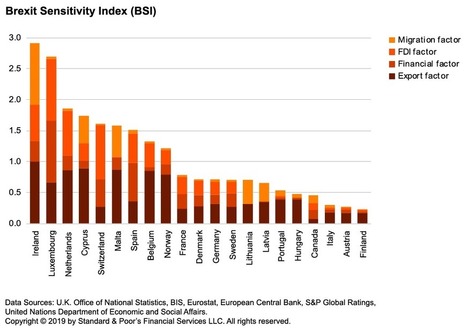


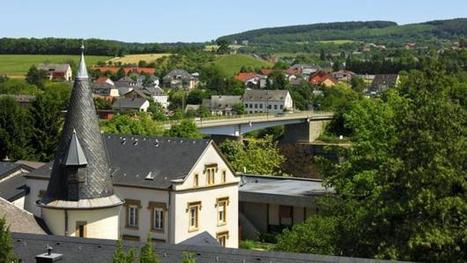



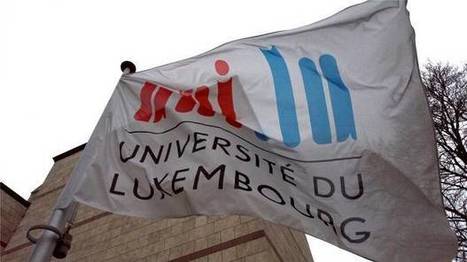


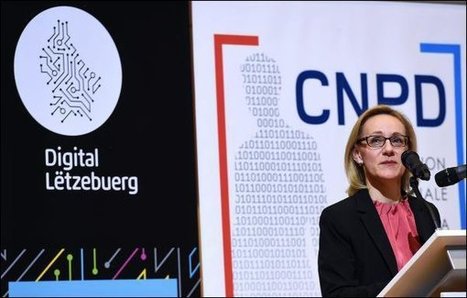
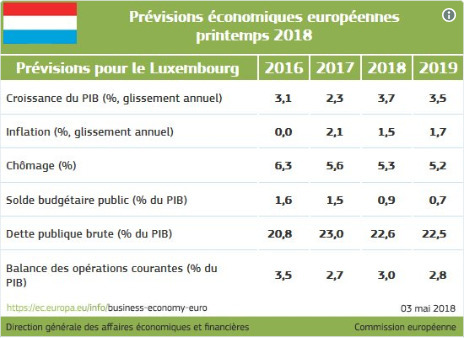
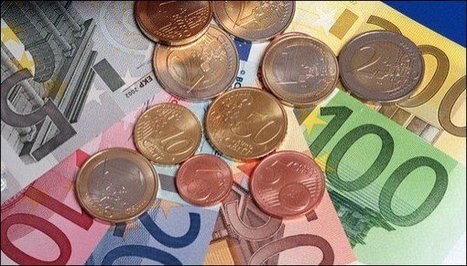


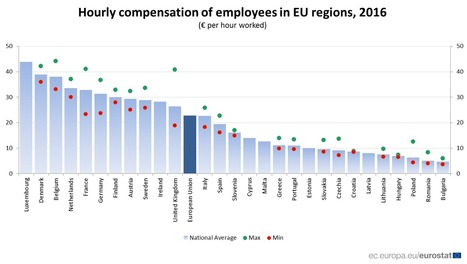
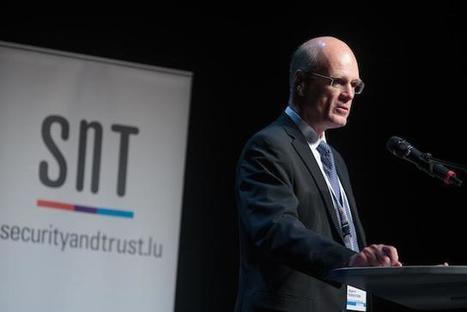
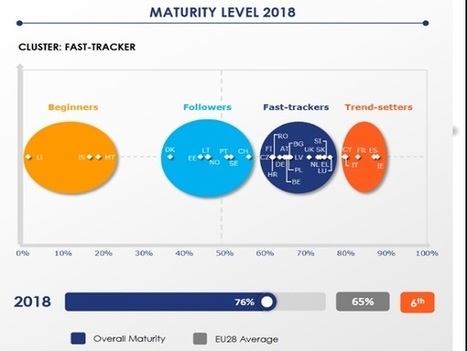




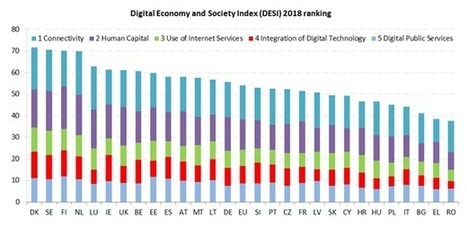



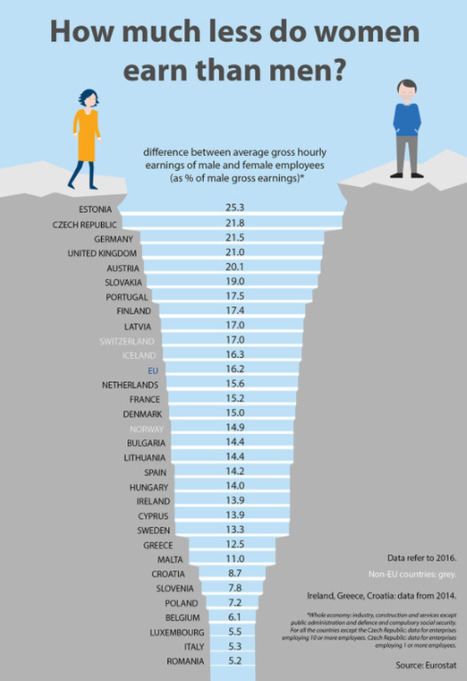





Les trois pays européens les plus exposés au Brexit sont, dans l’ordre, l’Irlande, le Luxembourg et les Pays-Bas, selon l’«indice de sensibilité au Brexit» calculé par l’agence de notation Standard & Poor’s (S&P) et publié le 28 mars. Selon les critères retenus par celle-ci, les pays les moins exposés sont alors l’Italie, l’Autriche et la Finlande.
Dans le détail, l’indice de S&P compile les données liées aux exportations de biens et services vers le Royaume-Uni, aux flux migratoires bidirectionnels, aux liens du secteur financier vis-à-vis de contreparties britanniques et aux investissements directs étrangers (IDE) au Royaume-Uni.
Learn more / En savoir plus / Mehr erfahren:
https://www.scoop.it/t/luxembourg-europe/?&tag=Brexit